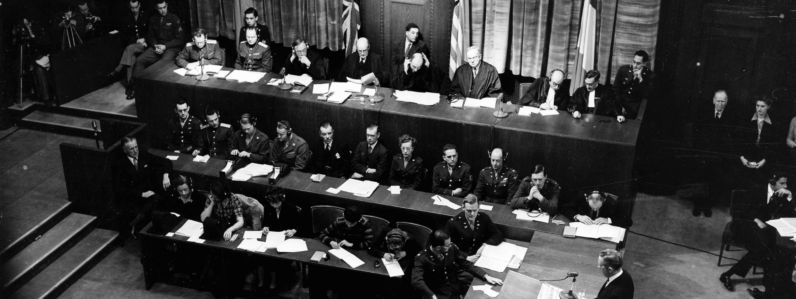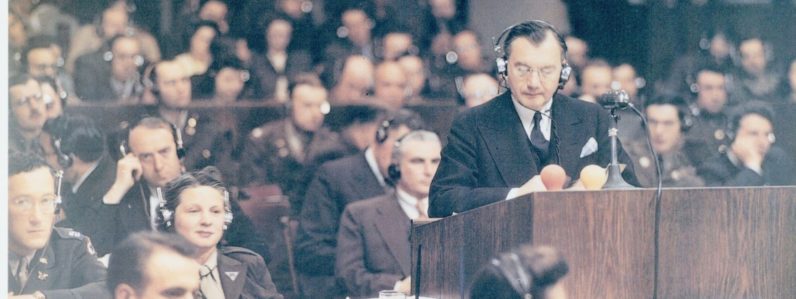I cannot let this occasion rest on playful words. There are serious thoughts in our minds that need expression.
Before Mr. Fletcher a procession of generations has marched. Each year a new group went forth from the high school, moving on to the adventure of life. He was there before they came—he stayed when they were gone. We students came to think of him as permanent and ourselves as transients: we were the great parade; he from the reviewing stand saw us pass. We were the moving satellites, the erratic comets—he the fixed star. So it came as a shock to read of his resignation, to learn that the fixed star also moves. The years had dealt so gently with him we thought they had not touched him. And his retirement chides us for letting years slip by with so much to do, so little done.
Two decades have passed, since, with an odd assortment of Regents’ counts and demerits, my class graduated from the Jamestown High School. But old habits linger. I still hope for Mr. Fletcher’s approval, still want a passing mark at his hands—and demerits from him would sting as few others could. And so the competition of school days goes on. His friends now face his examinations as anxiously as they did as students. They, like myself, heedless of the passing years, had an impression of permanency about Mr. Fletcher that was rudely shaken upon reading of his resignation.
But the atmosphere of permanency about Milton Fletcher was no illusion. In his influence, there is that which defies time and abides through all changes of fortune. We now know that many things we thought were permanent do pass away. But a few years ago we were boastful, like Bassanio, of the many ships at sea and their profitable return. But now we learn the wisdom of Shylock’s answer to the boastful speculator, “Yet his means are in supposition… Ships are but boards, sailors but men, there be land rats and water rats, water thieves and land thieves; I mean pirates; and then there is the peril of waters, winds and rocks.”
Have we not learned, as Shakespeare says, that most of our worldly treasure is but in supposition? But it was Milton Fletcher’s function in our lives to teach us to lay up treasure where moth and rust do not corrupt, nor thieves break through and steal, nor business cycles come and carry away, nor high pressure salesmen induce us to trade away.
Julius Rosenwald once said that success in the commercial world is largely a matter of luck. He stirred a controversy. Nearly all men who had made great success felt it was due only to their merits. Those who had failed were silent. The chorus of self-applause from “self-made” men drowned out the courageous words of the great merchandiser who insisted that wealth is much of luck.
The honor this community pays to Milton Fletcher is no accident. Unlike the trader, the teacher earns his own destiny. What he gives to the world is not quoted in the market. He gives by his example and his character and his industry. That is in his individual control. No great tide of events can sweep it away.
Oscar Wilde wrote of a man as one “who knows the price of everything and the value of nothing.” And his tribe is numerous. The price tag governs all of our society, most of our politics and much of our education.
Those who came to Mr. Fletcher’s classes were born under a lucky star, for at an impressionable age they learned a different set of values.
He has not sought to own the world. His life has nothing of selfishness or vanity. He entered the ancient and honorable profession whose returns were never known to include wealth. He has fitted his pupils to go out into other fields and surpass his own income. And he saw it gladly—with no envy and no regret.
He has not sought notoriety, but has quietly pursued his duties. He has not sought to reform the world overnight, but it has been bettered each day for his having lived. He has not sought to fit all students to a single mold but has encouraged and brought out the varied talents that nature gave. He has not marched in the torch light processions of the faddists, nor sulked on the benches with the cynics. He has not fawned upon nor feared the crowd, nor bent the knee to any individual or class. No better example of a well-poised intellectual life had been given to this town in my day.
Each of us who sat at his feet to learn was given something of his sense of values in life. How much each took away depended on his ability to appreciate and carry. Whether active or in retirement, he is a permanent influence upon individual and collective character which stands majestic amid the rise and fall of our luck and circumstance. He may resign his place on the payroll, but he cannot resign his place in our lives. There he abides and there he gently guides us toward the good and useful life.
We know that gifts are but symbols, but marks on the sand—a gift is but the making of a primitive sign to express that for which the race has not yet found words. The little that we give now is not a measure of our debt to you, but only a sign that we acknowledge a debt that does not measure in coinage or merchandise.
As for your years of retirement, our hope is that they may be as fully enjoyed as they have been fairly earned. As official relations close, there open days of lessened care in which time may be found to fulfill your nomadic dreams, to wander in delightful bypaths, to enjoy personal relations without the burdens of office or the strife that always accompanies an effort to carry forward.
“Clean simple, valiant, well beloved,
Flawless in faith and fame
Whom neither ease nor honors moved
An hair’s-breadths from his aim.
Yet from his life a new life springs
Thru all the hosts to come,
And Glory is the least of things
That follows him along.”







